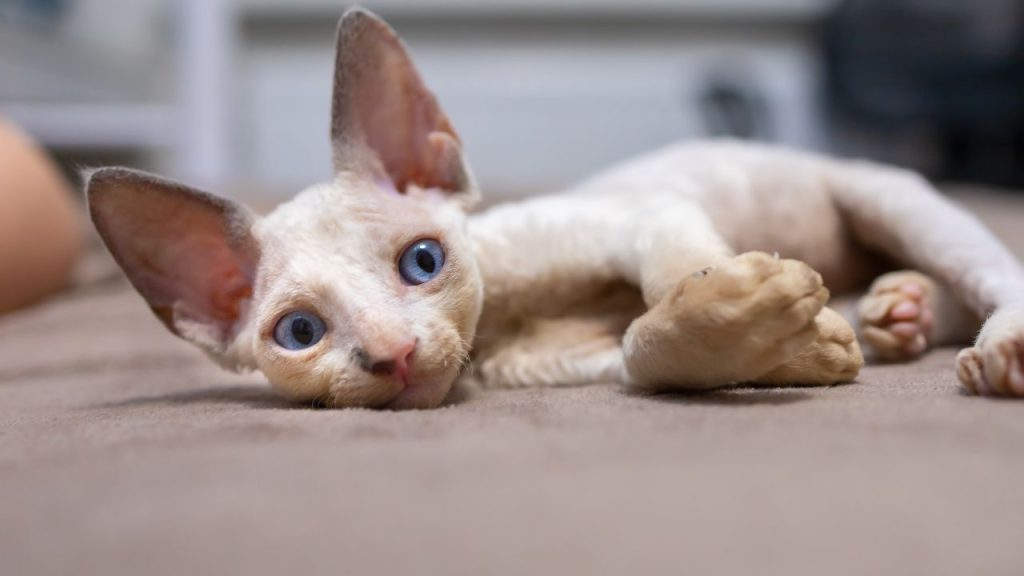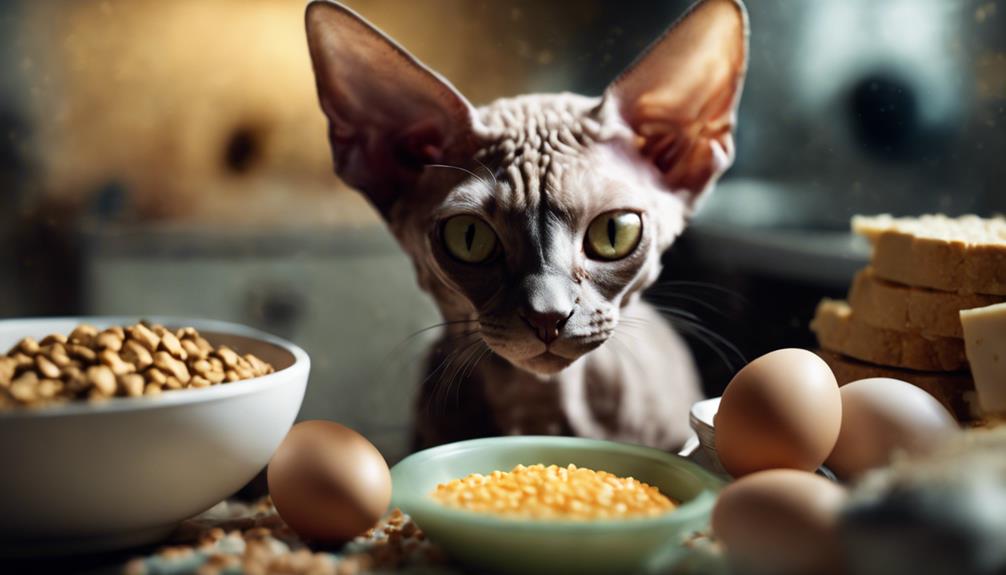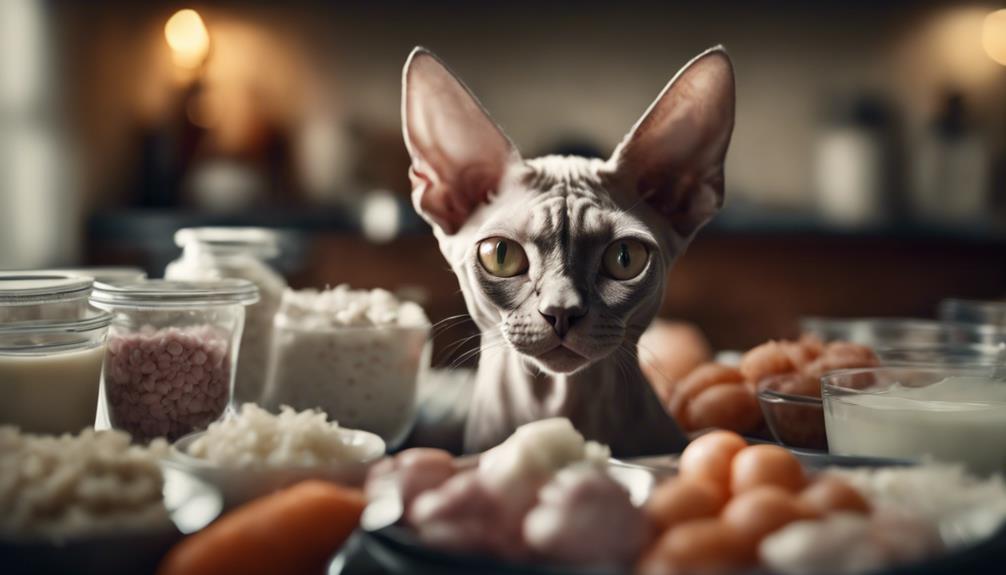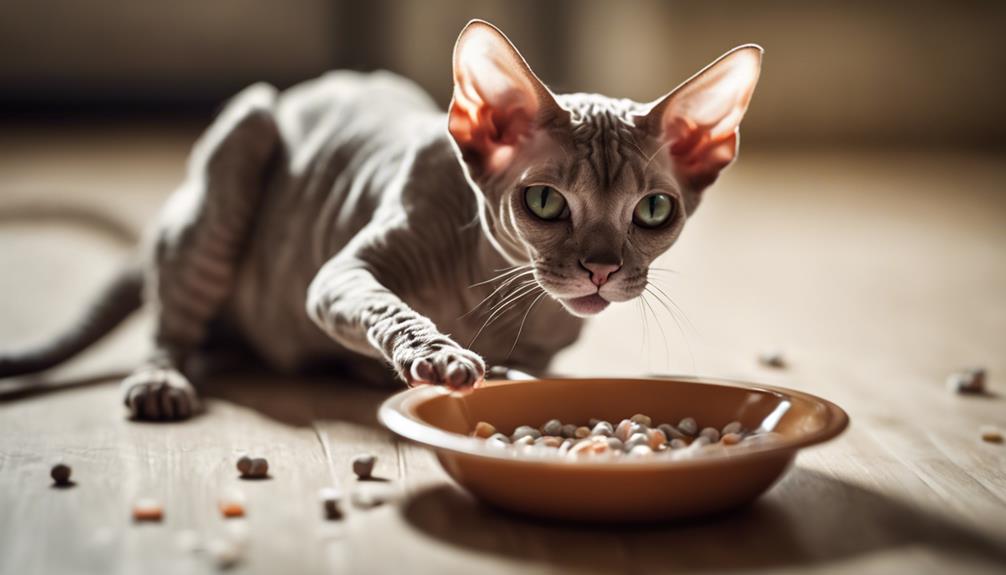Devon Rex cats may be known for their unique physical characteristics – including large ears, curly whiskers and a soft, downy coat – but there is much more to these special felines than meets the eye.
From potential health issues and nutrition needs to behavior quirks that owners should be aware of, Devon Rex cats are both fascinating and complex animals who require specific care.
In this blog post, we will delve into some of the potential problems faced by this curious breed so that owners can better understand how to keep them healthy, happy and safe at all times.
What problems do Devon Rex have?
Despite their endearing appearance and undeniable charm, Devon Rex cats can experience a variety of health problems.
These unique felines are known for their slender bodies and wavy fur, but they can also suffer from issues such as hypertrophic cardiomyopathy, patellar luxation, and hereditary myopathy. Hypertrophic cardiomyopathy, a common heart disease in cats, causes the heart muscle to thicken, inhibiting its ability to pump blood effectively. Similarly, patellar luxation can afflict their kneecaps, leading to difficulty walking and potential lameness.
Additionally, hereditary myopathy, a muscular condition specific to the Devon Rex breed, can result in overall weakness and muscle wasting. It’s crucial for Devon Rex owners to be aware of these problems and keep an eye on their cat’s health to ensure a long, happy life together.
Do Devon Rexes have health problems?
While Devon Rexes are generally considered to be healthy cats with fewer breed-specific health issues compared to others, they are not entirely immune to certain health problems.
Some common concerns among Devon Rex owners include hypertrophic cardiomyopathy, which is a type of heart disease, and patellar luxation, a condition that affects the knee joint. Moreover, they are prone to skin allergies and ear infections due to their tendency to produce excess earwax.
Another known issue among this breed is the possibility of a hereditary muscle disorder called myopathy. Although these vulnerabilities exist, it is essential to remember that with proper care and regular veterinarian visits, most Devon Rexes can live a long and healthy life.
What are the cons of a Devon Rex cat?
While the Devon Rex cat is an adorable breed with a unique appearance and a playful personality, there are several downsides to owning one.
Firstly, these cats are prone to a number of health issues, such as hereditary myopathy and patellar luxation, which can lead to additional medical expenses and heartache for their owners. Moreover, their coats are quite fragile and require specific grooming care – their thin, curly hair can become easily damaged if not attended to properly. Furthermore, the Devon Rex is a highly sociable creature, which could be a drawback for some; they tend to demand consistent attention, time, and companionship from their owners. This may not be suitable for individuals with busy lives or those who are unable for other reasons to commit to offering the necessary level of engagement their Devon Rex cat desires.
Lastly, allergies may still pose a problem despite the breed being touted as hypoallergenic, so potential owners should spend time around these cats before making any decisions.

Are Devon Rex cats low maintenance?
Deciding whether to bring a Devon Rex cat into your home might be a bit easier when you realize that these charming, mischievous feline companions are considered to be relatively low-maintenance pets.
Known for their curly, plush coats and strikingly large ears, Devon Rex cats actually shed minimally in comparison to other breeds. This means you will not have to groom them as extensively or clean up their fur as often. Furthermore, they are intelligent creatures that can adapt quickly to household routines and, as a result, require less training.
While regular care such as providing a balanced diet, clean water, and an appropriate litter box setup is essential to a Devon Rex’s well-being, these gorgeous kitties can make for delightful companions without demanding too much of your time or energy in terms of maintenance.
Are Devon Rex destructive?
Devon Rex cats have a reputation for being mischievous and curious, which can lead some to question whether they are destructive or not.
While it is true that these playful felines may exhibit a strong sense of curiosity and desire to explore their surroundings, they are not inherently destructive creatures. In fact, Devon Rex cats are known for their intelligence and adaptability, which means they can be easily trained to avoid problematic behaviors. Like any breed, individual personalities may vary and some may be more prone to mischief than others. Engaging a Devon Rex in interactive play and providing appropriate outlets for their energy, such as toys and climbing structures, can help mitigate any potential issues.
Thus, while these spirited cats may be a bit lively for some households, they are not necessarily destructive by nature.
Do Devon Rex cats meow a lot?
Devon Rex cats, with their large, inquisitive eyes and playful demeanor, have won the hearts of many cat lovers.
An interesting question that arises is whether these adorable creatures tend to meow a lot. While every cat has its unique personality and communication style, Devon Rex cats generally are known to be quite vocal. However, their meows are not always loud or irritating, but rather expressive of their social nature and constant desire for interaction. These talkative felines love engaging with their human companions, as well as their fellow furry friends.
So if you’re considering bringing a Devon Rex into your home, be prepared for some delightful and engaging chatter from a loving and energetic companion.
What Are the Common Health Issues for Devon Rex Cats?
The common health issues for Devon Rex cats include hereditary myopathy, hypertrophic cardiomyopathy, dental issues, and skin problems. Regular vet check-ups, a balanced diet, and proper grooming can help manage these common health issues for Devon Rex cats and ensure their well-being.
Final Worlds
With their big personalities, Devon Rex cats are a great breed for someone looking for an active, playful and even mischievous companion.
Despite the potential health problems of Devon Rex cats, many owners will tell you the joys of having one far outweigh any downside. With quality food and regular vet visits, most of the health risks associated with Devon Rex can be properly managed.
All in all, if a passionate and curious pet is what you are looking for, then look no further than the affectionate Devon Rex!




